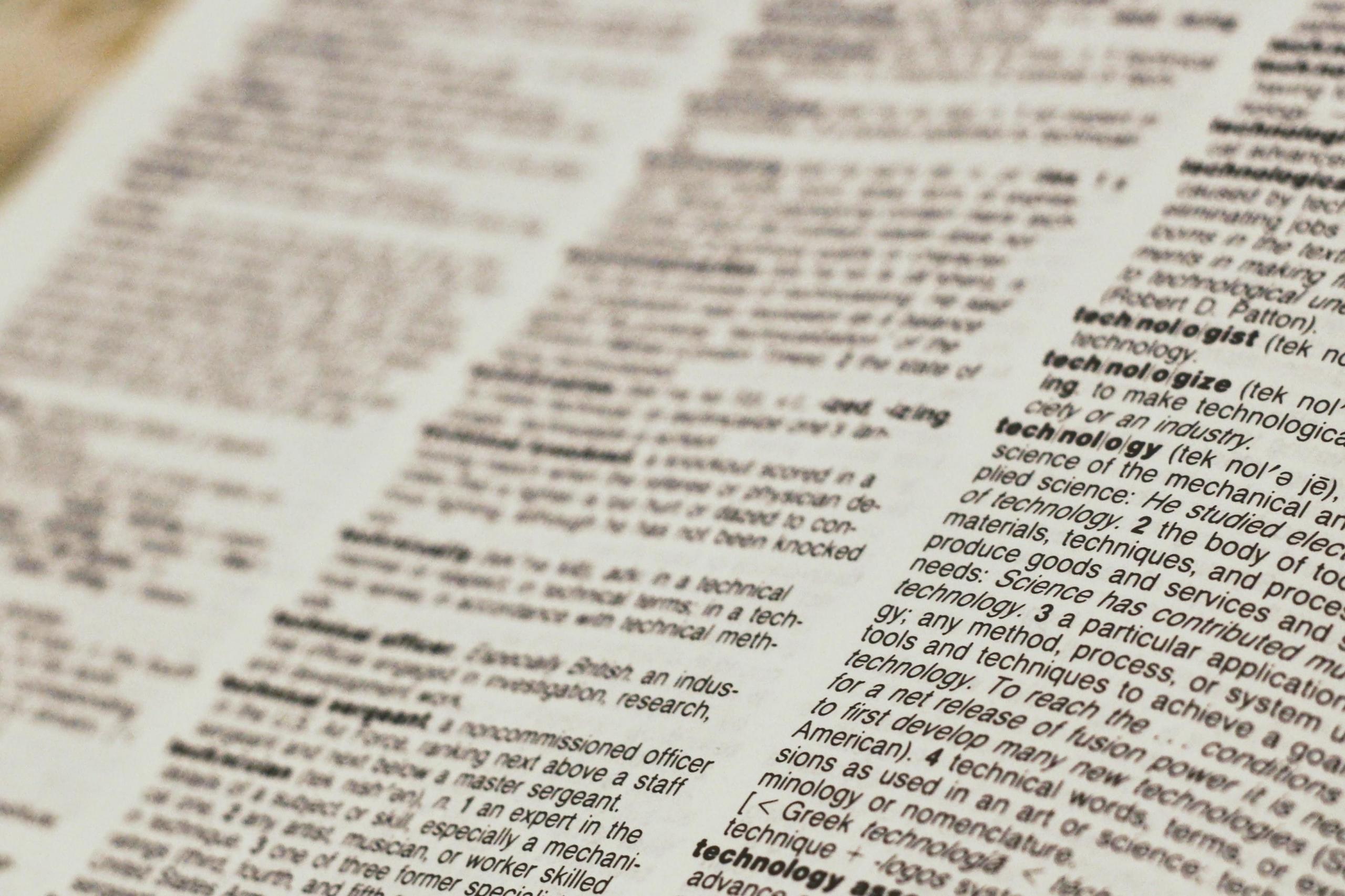You can make anything by writing.
C.S. Lewis
Learning the correct use and the differences between a hyphen and a dash is easy, but you have to pay attention or else it can get confusing much easily. A dash is used to break up thoughts or add emphasis in a sentence, while a hyphen simply links words together, like in “well-being” or “long-term.” To spot the differences you will need to pay attention to their place in a sentence, if they're in between letters, if they're set in the middle of the sentence, and most importantly, their width. You read that correctly, the width of these punctuation signs is important because it will indicate whether they're a dash or a hyphen! We've created this guide to teach you how to spot these key differences and start using the correct form of punctuation the next time you're writing an essay for your language class.
| Feature | Dash (– or —) | Hyphen (-) |
|---|---|---|
| Purpose | Breaks thoughts, adds emphasis, replaces parentheses | Links words or parts of words |
| Appearance | Longer (– en dash, — em dash) | Shorter |
| Examples | 1939–1945 (range), Love depends – trust | Editor-in-chief, Five-year-old |
| Placement | Spaces often surround the dash | No spaces around the hyphen |
| Keyboard Shortcut | Requires special shortcuts (Ctrl + Alt + Minus) | Easily typed next to the "0" key |
Learn about the differences between They're, There and Their!

Hyphen
A hyphen is a punctuation mark used to separate syllables or a letter in a word or to join two words together. The use of hyphens is called hyphenation and that little line (-) between words is the hyphen. If you connect two words with the hyphen, you make it clear to readers that the words work together.

You're probably now thinking of hyphenated words you know, but to clear you of all doubts here are some concrete examples:
Editor-in-chief
Five-year-old
Mother-in-law
The most simple of hyphenated words are when they work together to function like one adjective, these are called compound modifiers. In this case, the hyphenated word goes before the noun in the sentence.
Here is an example:
- We’re looking for a dog-friendly restaurant to eat freely with our three dogs.
If you want to combine a noun, adjective, or adverb with a present participle (words that end in ing) you better use a hyphen to make that unit of meaning clear.
Here is an example:
- There are some beautiful-looking flowers in the park.
If you feel like a word has a hyphen but aren't sure of it, you can always check your preferred dictionary.

Search for the most effective online english tutor here.
Dash
The dash, like the hyphen, is another punctuation mark that looks similar to the minus sign and the hyphen but has a different width and use. There are five occasions on which you can use a dash. To show range, spans, or differentiation, to extend a sentence, to replace parentheses, and to credit a quotation.
To show a range of time like the duration of war or someone's life
For example, WWII lasted for six years (1939–1945).
To show spans
For example, The Paris–London flight got canceled due to bad weather.
To extend a sentence
For example, Love depends on one thing – trust.
In this example, the dash is used instead of using three dots but it can also be used to replace a colon and a semicolon.
To replace the use of parentheses in a sentence
For example, Being in love depends — as my mother used to say — on how much you trust the other person. In this example, both dashes are used instead of parenthesis, commas, or brackets.
To credit a quotation
For example, "The way to get started is to quit talking and begin doing." — Walt Disney
Finally, there are two types of dashes, the em dash (—) and the en dash (–). They are named like that because, the em dash is the same length as the character "M" (uppercase), and the en dash is the same length as the letter "n" (lowercase).
The en dash is typically used for spans or time range. On the other hand, the em dash is commonly used instead of parenthesis, commas, or when you want to extend the sentence without using the three dots, colon, or semicolon.

Find out about the best english tutor here.

How to Distinguish between a Hyphen and a Dash
The dash, hyphen, and minus sign could all pass as the same. Many even use hyphens instead of dashes because dashes are not featured on every keyboard. Not to worry, mixing these up is not a crime but using the correct sign in your writing shows better use of language and a sophisticated writing style. Learn the differences between adjectives and adverbs here!
Dash
The usage of dashes is reserved for complete sentences, to indicate the range between two pieces of information, or to give credit for a quotation. The en and em dashes are long. Also, a dash commonly has a space between the words it's separating. That space shows that there's no compound word forming with the dash.
Hyphen
The usage of hyphens is to join together two words or to create space in one word between letters. This type of punctuation marks a key difference with the dash because it looks shorter. Also, a hyphen usually has no spaces once it's put in between two words.
Minus
The minus sign is not used in writing at all, it's only seen between numbers to create a mathematical problem. If you are confused between the hyphen and the minus sign, just think that the hyphen will be used between letters and the minus between numbers.
For more examples of the different usage of these three signs feel free to check your dictionary or go on Google. If you want to learn their proper use you can search for an English grammar tutor right here on Superprof.
You can learn more about English grammar in A Quick Guide to English Grammar here!

How Superprof Can Help You Master English Writing
Learning the English language, including proper punctuation, grammar and style, can definitely feel overwhelming! However, with Superprof, the process becomes simple and engaging. Whether you are struggling with understanding the subtle differences between a dash and a hyphen or need help mastering complex sentence structures, Superprof will help you find experienced tutors! For personalized local guidance, consider an english tutor near me. Superprof's tutors adapt their lessons to you thanks to it's one-on-one guidance. That's right! You can focus on areas where you need improvement, whether it is punctuation, word choice or academic writing skills.
Combined Annual Estimate: Between 7 and 8 million people are engaged in some form of English language class in the U.S. This number reflects the diverse pathways people take to learn English, including public education, adult education, higher education, private and online programs.
You can choose to take online and in-person lessons, allowing you to learn at your pace. By practicing regularly with an English tutor, you’ll not only learn proper punctuation—such as when to use a dash versus a hyphen—but also elevate your overall writing skills! Superprof offers lessons for all ages and skill levels, making it an excellent resource for students, professionals or anyone looking to work on their English. Sign up today!
Now That You Understand the Key Differences
We hope you found this guide about dashes and hyphens useful. It can be a bit long to read but definitely worth your time once you show your English teacher you dominate the use of dashes and hyphens. You can also set an example for the rest of your classmates by learning the correct use of these two punctuation signs.
If your keyboard doesn't have the dash and you can't allow yourself to pass a hyphen for a dash, you can always google "em" or "en dash", copy and then paste it in your text. It's a little annoying but it does the job and you'll be able to show off your language skills. For more information on English grammar learn about the parenthesis and their different use.
Summarize with AI:
















I love it!
Thank you for the positive feedback! 🥳